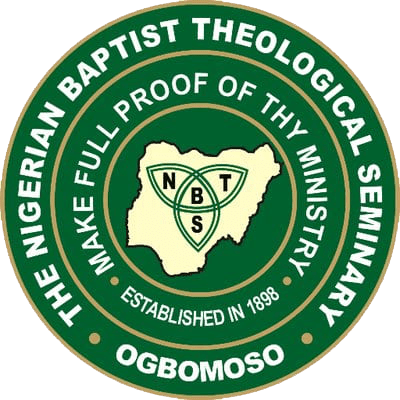Text: Charles Wesley (1707-1788)
Tune: DYING STEPHEN, John F. Lampe (1703-1788)
Genre: Hymn
Language: Yoruba
Scripture References: Exodus 15:1, 15; Matthew 16:13-20; Romans 5:1; Colossians 3:15; Revelation 7:2-17
Liturgical Functions/Seasons: Praises/Adoration, Thanksgiving, Dedication
Themes: Sovereignty, Submission, Trust
Hymnal References: Yoruba Baptist Hymnal #564, The Apostolic #683, Hymnal Companion #578
Charles Wesley (18 December 1707 – 29 March 1788) was an English leader of the Methodist movement. Wesley was a prolific hymn-writer who wrote over 6,500 hymns during his lifetime. Head of Thy Church triumphant was composed by Charles Wesley (1707-1788). The hymn was enlisted among the “Hymns for Times of Trouble” for the Year 1745, which was also published during that year. It was No. xv., in 4 stanzas of 10 lines (Poetical Works, 1868-72, vol. iv. p. 79.The song was borne when the rebellion of Prince Charles Edward Stuart (the young Pretender) threatened to overthrow the Hanoverian settlement. In this regard, he agreed together with foreign war to launch attack, for which a National Fast was proclaimed.
The Methodists were anxious to proclaim their loyalty to the crown, and the little book of fifteen hymns was the result (one of the other hymns is entitled ‘For his Majesty King George’; similar hymns were written by Wesley at this time). The book was republished in 1745 as part of a four-part compendium under the title Hymns for Times of Trouble and Persecution (Bristol: Felix Farley) containing ‘Hymns for Times of Trouble’.
This hymn was included in Whitefield’s Collection, 1753; Madan’s Psalms & Hymns, 1760; Toplady’s Psalms & Hymns, 1776; the early editions of the Lady Huntingdon Collection, and others of the older hymn-books. Gradually it became very popular, and its use extended to most English-speaking countries. Notwithstanding this success it was excluded from the Wesleyan Hymn Book until the revised edition, 1875. It has been and still is often attributed to De Courcy. The mistake began with Bickersteth in his Christian Psalmody, 1833. He copied from De Courcy’s Collection, in which authors’ names were not given, and was thus led into the error. In the last stanza of the hymn there is a reference to the death of Stephen, which has led in a few instances to the adoption of the hymn for St. Stephen’s day (Hymn on the Great Festivals of 1746. No 15). Alternate tunes are Hodderson’s Ann S. Bartholomew of 1880 and Lostwithiel’s James Turle of 1854. Charles Wesley’s Journal gives many glimpse of that trying year, when the Young Pretender entered Edinburgh in triumph.
“Olori Ijo T’orun” is a hymn title that is usually sung round the years in Nigerian churches. Olori Ijo T’orun is a Yoruba version of the Hymn titled: Head of the Church Triumphant. The hymn could be found in many hymnals, especially in mainstream and evangelical churches. It was published in 191 Hymnals altogether (https://hymnary.org/text/head_of_thy_church _triumphant). The Song titled “Olori Ijo T’orun” is a hymn that is usually sung in Sunday worship service in Nigerian churches. It is mostly engaged at corporate than personal worship, because of the lines of the music (text) which is directly giving praises to Jesus “the Head of the Church”. It could also be sung on any other weekly services, but it more relevant on occasion of laying foundation and dedication of church auditorium and other buildings.
Lyrics
Yoruba
Olori Ijo t’orun
Layo la wole fun O;
K’O to de Ijo t’aye
Y’o ma korin bi torun
A gbe okan wa soke
Nireti to ni’bukun
Awa kigbe, awa fi’yin
F’Olorun igbala wa.
Bi a wa ninu ‘ponju,
T’a n koja ninu ina,
Orin ife lawa o ko
Ti yoo mu wa sun mo O
Awa sape, a si yo
Ninu ojurere Re
Ife to so wa di tire
Yoo pa wa mo titi lai.
Iwo mu awon eeyan Re
Koja isan idanwo
A ki o beru wahala
‘Tori O wa nitosi
Aye, ese at’Esu,
Koju ija si wa lasan
L’agbara Re a o segun
A o si ko’rin Mose.
Awa fi’gbagbo r’ogo
T’O n fe lati fi wa si
A kegan ere aye
Ti a fi siwaju wa
Bi O ba si ka wa ye,
Awa pelu Stefen t’o ku
Yoo ri O bi O ti duro
Lati pe wa lo s’orun
English Translation
Head of Thy Church triumphant,
We joyfully adore Thee;
Till Thou appear, Thy members here
Shall sing like those in glory.
We lift our hearts and voices
With blest anticipation,
And cry aloud, and give to God
The praise of our salvation.
While in affliction’s furnace,
And passing through the fire,
Thy love we praise, which knows our days,
And ever brings us nearer.
We clap our hands exulting
In Thine almighty favor;
The love divine which made us Thine
Shall keep us Thine forever.
Thou dost conduct Thy people
Through torrents of temptation,
Nor will we fear, while Thou art near,
The fire of tribulation.
The world, with sin, and Satan
In vain our march opposes,
Through Thee we shall break through them all,
And sing the song of Moses.
By faith we see the glory
To which Thou shalt restore us,
The cross despise for that high prize
Which Thou hast set before us.
And if Thou count us worthy,
We each, as dying Stephen,
Shall see Thee stand at God’s right hand,
To take us up to Heaven.
Sources:
Calvin Institute of Christian Worship, https://hymnary.org/text/head_of_thy_ church_triumphant. Accessed 21/11/22.
Canterbury of Christian Hymnology, https://hymnology.hymnsam.co.uk/h/head-of-thy-church-triumphant. Accessed 20/11/22.
Richard W. Adams, http://www.hymntime.com/tch/htm/h/t/c/t/htctrium.htm
Contributed by Victoria O. Ayano.

